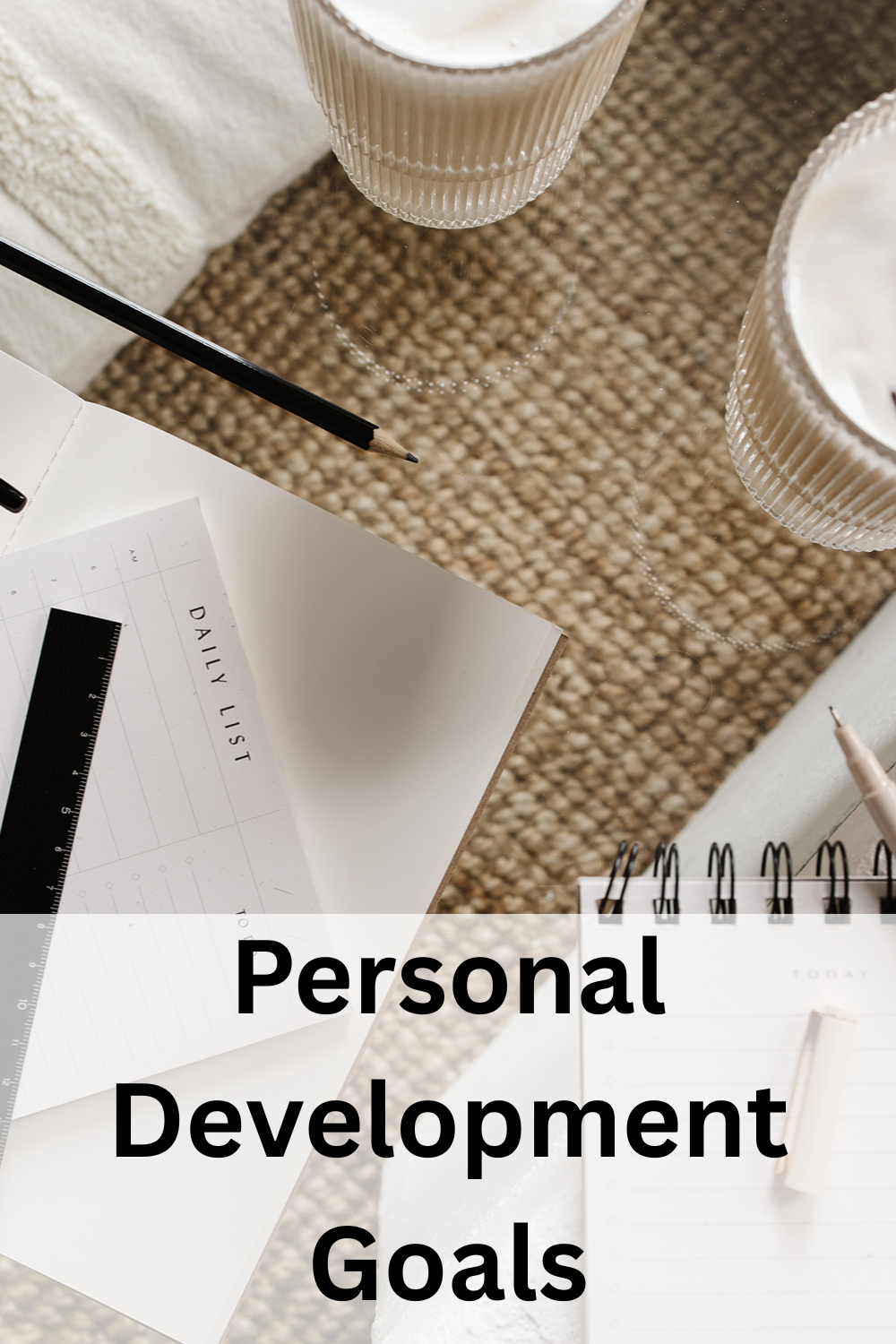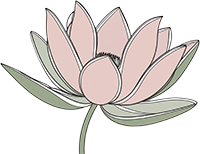Setting personal development goals is an individual process and can be very challenging at first. This article will help you with setting your goals and give you some inspiring examples.

Personal development goals can vary greatly from person to person because we all have unique priorities, values and beliefs. In my own experience, setting and regularly reviewing personal development goals is incredibly important for achieving tangible results.
That’s why, in this article, you’ll not only find inspiration for personal development goals but also discover practical strategies to help you excel at goal setting.
After reading this article you will not only gain a deeper understanding of the process but also feel motivated to set and achieve your own personal development goals. So, let’s dive in!
What are Personal Development Goals?
Personal development goals are the specific objectives you set to improve various areas of your life, such as physical and mental health, wellbeing, relationships or career. These goals help you become the best version of yourself by identifying areas you want to work on and setting a clear direction for growth. Moreover, do not forget, personal development is a live long journey, so consistency and good habits is something that will always be essential.
Why Do You need to Set Personal Development Goals?
Setting personal development goals is Important for continuous self-improvement. Without clear goals, you may feel stuck or unsure of your direction. However, when you set meaningful goals, you create a roadmap for growth, helping you stay motivated and focused. Additionally, personal development goals enhance self-awareness, improve productivity, and contribute to long-term happiness. At the end, you will have reasons to celebrate your success when you have the goals and you achieve them.
How to Set SMART Personal Development Goals?
Setting vague goals like “I want to be more confident” or “I want to improve my life” won’t get you very far and will make it difficult to stay motivated. Therefore to make real progress, take time to think about your goals and formulate them using the SMART framework:
- Specific – Clearly define what you want to achieve.
- Measurable – Set criteria to how will you know your progress.
- Achievable – Make sure your goal is realistic.
- Relevant – Ensure it aligns with your values and aspirations.
- Time-bound – Set a deadline to keep yourself accountable.
For example, instead of saying, “I want to read more,” a SMART goal might be: “I will read one personal development book per month for the next six months.”
Another important aspect is making sure your goals stay relevant for you. It is not enough to write it down and forget about it. Therefore, once you have your goals, make an effort to regularly review them monthly or quarterly. Ask yourself: Are these goals still meaningful to me, or has something changed? By doing this, you can ensure that your goals continue to align with your personal growth aspirations.
Personal Development Goals Examples to Inspire You
Below, you’ll find a list of personal development goal ideas to inspire you. These aren’t specific goals but rather key areas of personal growth that you may want to focus on. As you go through the list, take a moment to reflect on which areas resonate most with you. Then, use the SMART goal framework to set clear, actionable objectives that align with your personal growth journey.
Focus on one to three goals at a time. Once you’ve mastered one and made it a consistent habit, fully integrating it into your life, then you can move on to the next. This approach allows you to give each goal the attention it deserves, making it easier to sustain progress and achieve lasting results.
1. Improve Your Time Management
Managing your time effectively allows you to be more productive and reduces stress. Start by prioritizing tasks and setting deadlines.
2. Develop a Growth Mindset
Instead of fearing failure, embrace challenges as valuable learning opportunities. By shifting your mindset, you’ll not only navigate setbacks more effectively but also strengthen your resilience over time.
3. Enhance Your Emotional Intelligence
Being in touch with your emotions and understanding others’ feelings can significantly improve relationships and communication skills. For instance, you can achieve this by practicing mindfulness or keeping an emotions journal to enhance self-awareness.
4. Build Stronger Relationships
Nurturing meaningful connections with friends, family, and colleagues contributes to a fulfilling life. Focus on communication, empathy and active listening.
5. Boost Your Self-Confidence
Believe in yourself and your abilities. Challenge negative thoughts and celebrate your achievements, no matter how small.
6. Practice Mindfulness Daily
Spending just a few minutes each day practicing mindfulness or meditation can improve focus, reduce stress, and enhance overall well-being.
7. Develop a Reading Habit
Reading personal development, classic, or fantasy books—or any genre that interests you—not only expands your knowledge but also fosters continuous learning and creativity.
8. Improve Your Public Speaking Skills
Confidence in public speaking can significantly boost both your career and personal interactions. To improve, practice speaking in front of a mirror or camera, join a local speaking group, or participate in public speaking workshops.
9. Prioritize Physical Health
Regular exercise, a balanced diet, and sufficient sleep contribute to overall well-being and increased energy levels.
10. Enhance Your Romantic Relationships
Make time for your romantic partner to nurture your connection. Spend quality time together, engage in meaningful conversations about deeper topics and emotions, and strive to understand each other’s preferences and long-term goals. Since your romantic partner is often the closest relationship in your life, investing in it will strengthen your bond and enhance overall wellbeing.
11. Cultivate Gratitude
Keeping a gratitude journal helps shift focus from what’s missing to appreciating what you already have. In fact, gratitude is considered one of the most transformative emotion, as it fosters a positive mindset, enhances well-being, and increases overall life satisfaction.
12. Learn a New Skill
Whether it’s a language, musical instrument, or a professional skill, continuous learning keeps your mind sharp and opens new opportunities.
13. Develop Financial Discipline
Setting a budget, saving consistently, and investing wisely can help secure your financial future.
14. Step Out of Your Comfort Zone
Growth happens when you challenge yourself. Take risks and embrace new experiences to build confidence and resilience.
15. Set Healthy Boundaries
Respecting your own boundaries while clearly communicating them to others is essential for maintaining mental and emotional well-being. Pay attention to situations where your personal boundaries tend to be crossed by others, reflect on the underlying reasons, and develop new strategies to reinforce them effectively.
16. Improve Your Listening Skills
Being a better listener can strengthen relationships and improve understanding in both personal and professional interactions.
17. Cultivate a Positive Attitude
Adopting a positive mindset improves resilience and makes it easier to overcome life’s challenges.
18. Reduce Stress Through Self-Care
Regular self-care activities, such as yoga, reading, or taking walks, can significantly enhance your mental and emotional well-being. Take the time to identify which activities resonate most with you, and make a conscious effort to incorporate them into your daily routine.
19. Develop Morning Routine
A healthy and consistent morning routine, free from media distractions, can help set the tone for your day, making you more consistent and productive. After sleep, our brains function differently than later in the day; they are more suggestible during the early morning, which means it’s a sort of hypnotic state where any information or external overstimulation can have the greatest impact. By prioritizing mindful activities in the morning, you can influence your mindset and energy for the rest of the day.
20. Improve Work-Life Balance
Setting boundaries between work and personal life helps prevent burnout and enhances overall happiness. Take a moment to assess how well you currently manage this balance and identify specific areas where you can make improvements.
21. Seek Professional Guidance
Working with a coach or mentor can accelerate your personal growth by providing direction, support, and valuable insights. By setting clear goals with a professional, you can track your progress together and make adjustments along the way if needed, ensuring steady advancement toward your personal development objectives.
Final Thoughts
Setting and working toward personal development goals will not only enhance your skills but also improve your overall quality of life. Remember to stay patient, celebrate progress, and adjust your goals as you go.
Which of personal development goals will you focus on first?






